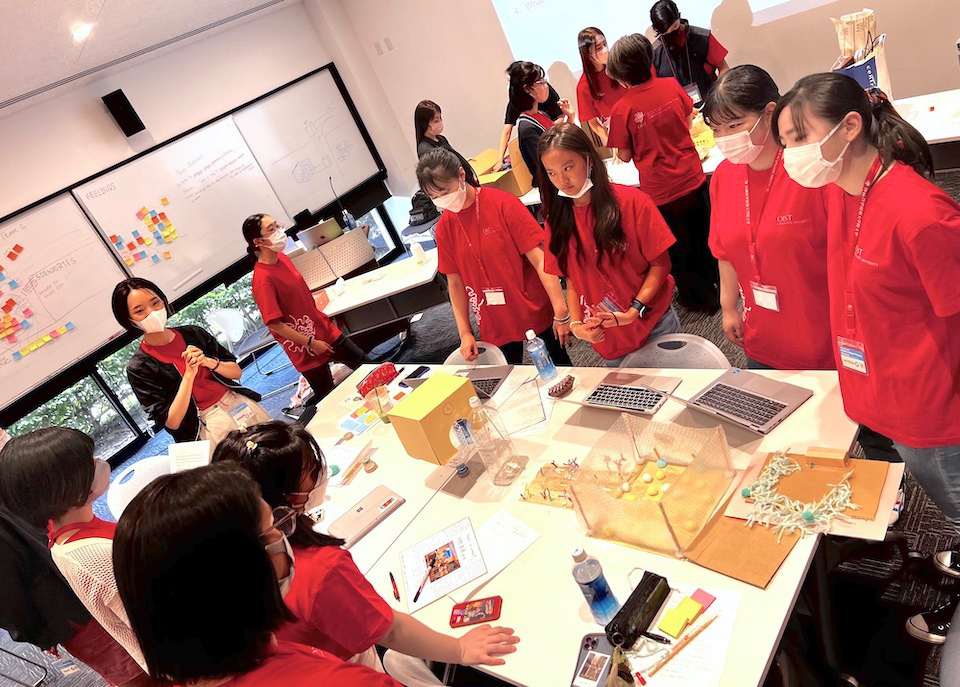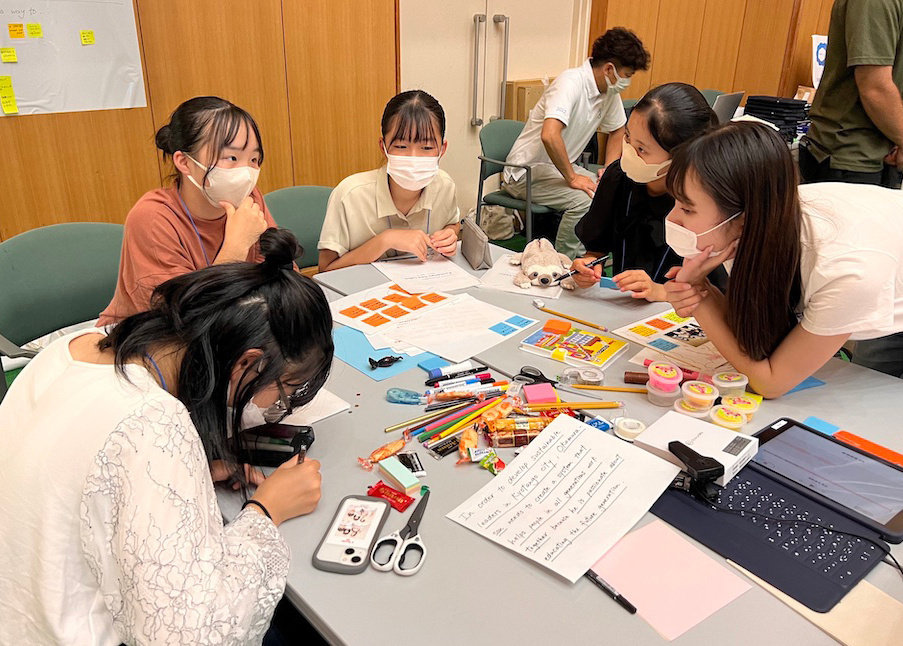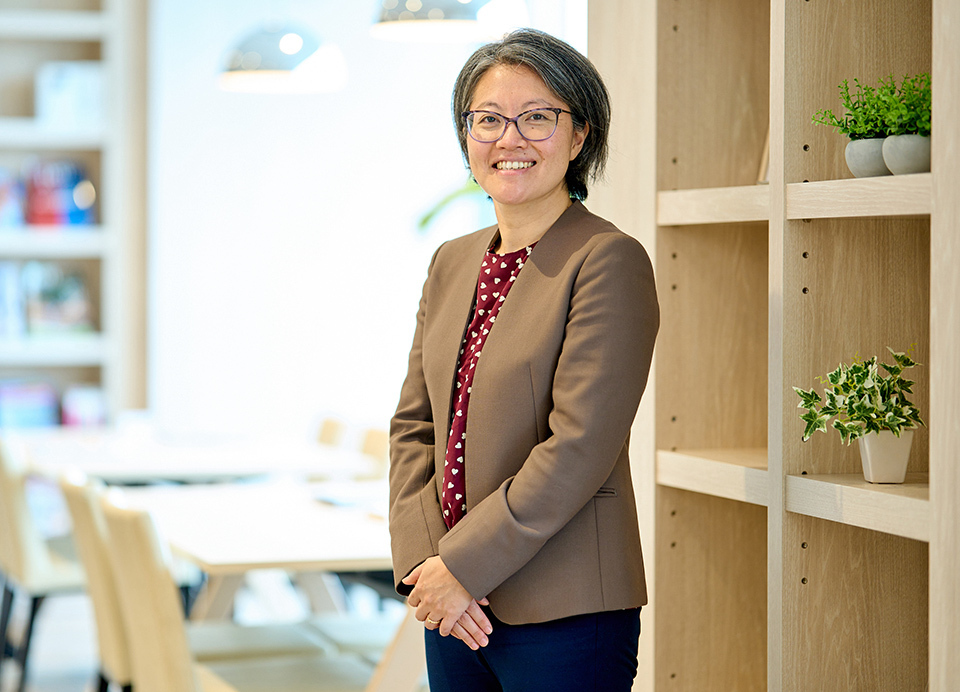
Using Design Thinking to Cultivate Global STEAM Leaders
Many adolescent girls think of science and technology as fields that are far removed from their own experiences and interests. However, the girls who participated in a three-day workshop for junior and senior high school students—conducted by an education non-profit organization, SKY Labo—came away with stronger interests in the STEAM fields.

This year, SKY Labo collaborated with Kyotango City, in the northern part of Kyoto Prefecture, the Okinawa Institute of Science and Technology Graduate University (OIST), and PwC Japan, a global consulting firm, to implement the workshop. The workshop’s theme this year was sustainability. Youths were placed in a team of four people and one design coach (a college or graduate student), then interviewed “users” (business leaders or university faculty members) to understand their needs. Each group brainstormed a solution to solve these user’s needs and created a prototype to visualize their solution. They presented the prototype to the users for feedback, which led to further improvements. Participants gained first-hand experience of SKY Labo’s “design-thinking” process that emphasizes the importance of thinking out of the box, failing forward, and bias towards action.

Today, there is a great need to create more opportunities for youths to pursue STEM (Science, Technology, Engineering, and Mathematics) in order to tackle the complex, global challenges our world faces. SKY Labo aims to cultivate the next generation of women STEAM thinkers by emphasizing the importance of human inquiry, or the Liberal Arts, and combining it with STEM. Through rigorous evidence-based research, they show that this results in a notable change in the participant’s perceptions towards STEM, a higher level of creative confidence, heightened prosocial tendencies, and an increase in future aspirations and career options.
Dr. Rie Kijima, the co-founder of SKY Labo and assistant professor and Director of Initiative for Education Policy and Innovation at the Munk School of Global Affairs & Public Policy at the University of Toronto in Canada, mentions that the uniqueness of SKY Labo activities lies in the utilization of design thinking to promote STEAM learning. “We want youths to think out of the box, explore different ideas, and work collaboratively in a more human-centered way. That is what we want the youths to take away at the end of the workshop,” she says.

Kijima’s focus on education has roots in her own career: after earning an M.A. at Stanford University, she worked for the World Bank and was involved in improving access to education and the learning outcomes of children and youths living in developing countries. There, she helped devise monitoring strategies to ensure that progress can be measured for various education projects. Upon returning to Stanford for her Ph.D., she gained more research skills and learned about different theoretical frameworks that help us understand issues of diversity, equity, and inclusion in education.
Driven by a strong desire to create a bridge connecting research, practice, and policy and to address the large gender gap in Japan, Kijima co-founded SKY Labo in 2016. To date, more than 300 youths have participated in their workshops. At the OIST workshop mentioned above, for example, one of the groups tackled the issue of sustainability and conceptualized the idea of cultivating young children’s love of nature by building a school under the sea, surrounded by translucent walls.
“In Japan, there is a narrow and leaky pipeline into the STEM fields for young girls and women. Research also shows that young girls in Japan have a lower sense of self-efficacy and self-concept, and are less motivated in science and mathematics compared to their peers in other OECD countries,” Kijima reflects. “There are various social forces that influence girls to think that they should not pursue the STEM fields.” Kijima thinks that we need to create a system where we empower youths so that they can break down the barriers to pursuing STEM. This desire, more than anything else, is what motivates Kijima in her efforts.
“Girls who were initially hesitant about voicing their opinions begin to feel more comfortable sharing their ideas as they make more progress during the workshop. Our job is to provide them with an opportunity to fail forward and to create a safe learning space for them to imagine what it is like to pursue their interests in STEAM,” she says.
Kijima’s message seems to be reaching them. As one workshop member noted, “The world is so much bigger than I had ever thought. My greatest takeaway is that now I think that maybe, I can change the world.”
This article originally appeared in Government of Japan's magazine, Kizuna.

